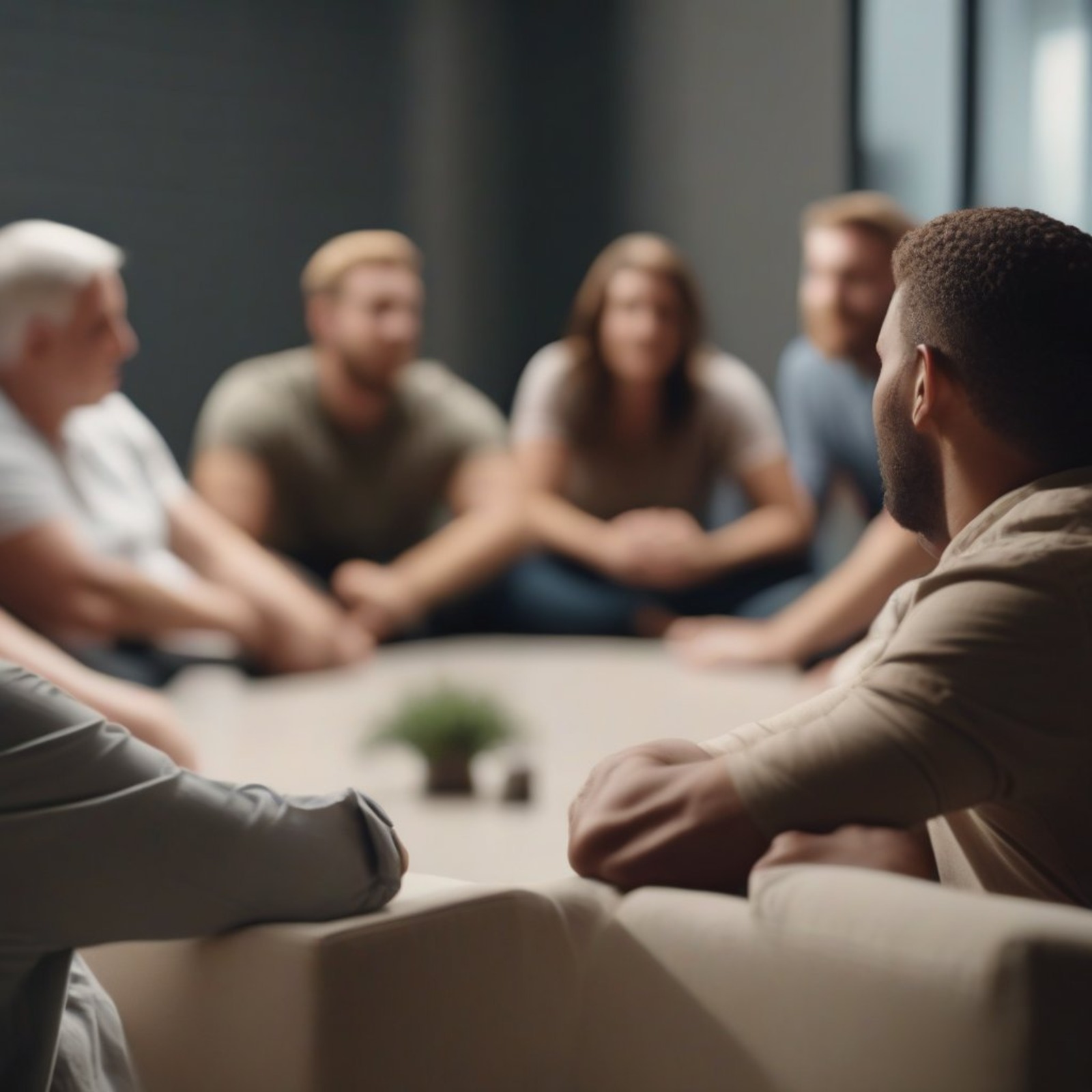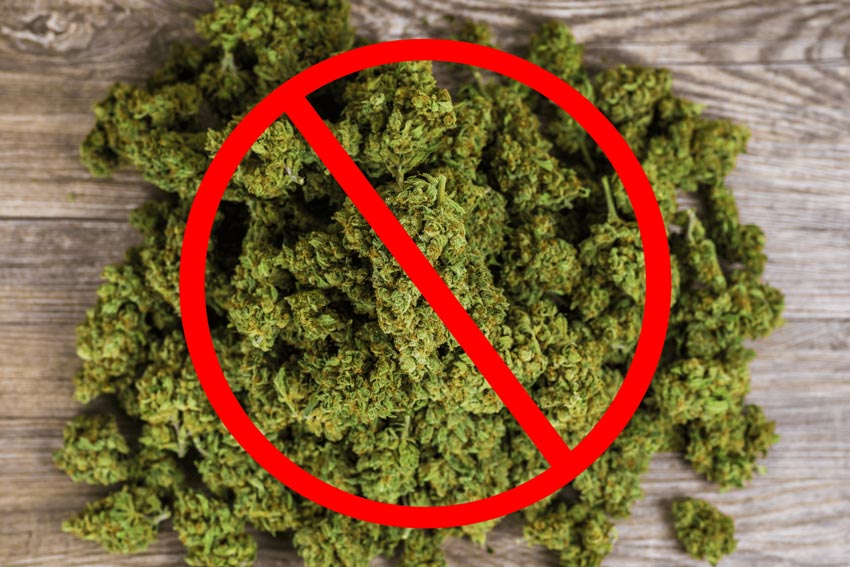Addiction | 4 min read
AA, NA, and Other Local Support Groups and Meetings To Support Your Sober Journey
Written By
On December 26, 2023

What you will learn
- New York has a range of local support groups and meetings for people struggling with addiction or mental illness.
- The best way to find a local support group is by using the meeting search tools from specific organizations like Alcoholics Anonymous or SMART Recovery.
- The National Alliance on Mental Illness (NAMI) and the Substance Abuse and Mental Health Services Administration (SAMHSA) also offer resources for local support.
- New York State has a 988 crisis hotline for access to mental health services, including local support meetings and resources.
Whether you moved to New York recently or are traveling and want to attend local group meetings, the city is home to a variety of support groups and meetings for substance use disorder and other types of mental illness.
Here’s everything you need to know about local support groups and meetings in New York City so you can find a group that suits your needs.
Alcoholics Anonymous (AA)
With a simple premise of “one alcoholic helping another,” Alcoholics Anonymous (AA) is one of the oldest and most recognizable peer support organizations in the country.[1] AA has a directory of local AA meetings in the state of New York, which you can browse by city, daytime, or type, including adult, 12-step, meditation, and more. There’s also a toll-free number to find online or in-person meetings or seek medical help. And there are plenty of other fun things to do in NYC besides drinking.
Cocaine Anonymous (CA)
An offshoot of AA, Cocaine Anonymous (CA) is a fellowship of men and women who share their experiences together to help everyone recover. There are no dues or fees – the only requirement is the desire to stop using cocaine and mind-altering substances. CA has no political, denominational, or institutional affiliation, but it relies on the Twelve-Step Recovery framework.
CA offers a calendar of upcoming meetings with days, times, locations, formats, and information about the groups, such as Men Only, Women Only, Big Book, Open Discussion (public invited), Step, and LGBTQIA+.
Crystal Meth Anonymous (CMA)
Crystal Meth Anonymous (CMA) is another fellowship based on the framework of AA to help people overcome addiction to crystal meth and stay on the path to recovery. The CMA has a calendar of upcoming support meetings with search filters for location, day, time, or type so you can find the ideal option for your needs. You could even search by in-person or online meetings, 12 Steps, American Sign Language (ASL), beginner, child-friendly, discussion, dual diagnosis, smoking permitted, and more.
Heroin Anonymous (HA)
Heroin Anonymous (HA) is a fellowship of people struggling with heroin addiction to provide shared support. Like other AA-based programs, HA has no dues or fees for membership – just the desire to stop heroin addiction.
HA offers a search tool for upcoming meetings based on state or area, including a list of meetings in New York. You can filter by day, time, type, or specific search terms to find the meeting that best fits your needs. There are also online meetings.
Marijuana Anonymous (MA)
Another program modeled after the philosophy of AA, Marijuana Anonymous (MA), is a fellowship of people who assist and support each other to help with recovery from marijuana addiction. The only requirement for membership is the desire to stop using marijuana.
The helpful search tool for upcoming meetings has a range of options to filter results by country, state, city, and language. You can further target your search by day of the week or specific preferences like meditation, speaker, beginners, women, men, transgender, or “for addicts only.”
Narcotics Anonymous (NA)
Narcotics Anonymous (NA) is one of the oldest addiction fellowships and is fully devoted to people who struggle with narcotics addiction. Like AA, NA hosts meetings regularly to help people find the support they need, no matter where they are.
You can use the NA meeting search tool to discover local virtual meetings and in-person meetings in New York, both open and closed. There are filters to help you choose the day and time that works best for you. NA has a mobile app for up-to-date meeting information as well.
The National Alliance on Mental Illness (NAMI)
The National Alliance on Mental Illness (NAMI) is affiliated with over 600 state organizations and affiliates across the country, including New York, and offers free support programs. You can find a list of NAMI support groups that are peer-led and offer participants an opportunity to share and get support.
- NAMI Connection: This is a free support group for adults who experience the symptoms of a mental health condition. It’s free, confidential, and peer-led, with 90-minute meetings weekly, every other week, or monthly.
- NAMI Family Support Group: This is a peer-led support group for adults with loved ones who struggle with a mental health condition. Like NAMI Connections, this family support group is free, confidential, and peer-led, with 60- to 90-minute meetings weekly, every other week, or monthly.
Secular Organizations for Sobriety (SOS)
Secular Organizations for Sobriety (SOS) is a nonprofit network of non-professional local groups that help individuals achieve and maintain sobriety from alcohol, drug, and food addiction. SOS hosts meetings on Tuesdays from 7:00 pm to 8:00 pm in Amherst, NY, and Saturdays from 2:30 pm to 3:30 pm in Buffalo, NY. If you can’t attend a meeting locally, there are online meetings hosted by the local SOS NY chapter.
SMART Recovery
SMART Recovery meetings offer support for addiction of all types, including alcohol, drugs, gambling, smoking, food, and more. These meetings are free and guided by trained facilitators. SMART Recovery meetings take place all over New York City and the state, both online and in person, and offer a range of days and times.
To find a meeting near you, use the handy SMART Recovery meeting search tool or the mobile app to access support resources from anywhere.
NYC Health – 988
In the state of New York, 988 is the suicide and crisis hotline to access free, confidential mental health support.[2] The hotline is available through phone, text, or chat to access mental health and substance use services 24/7. In addition to immediate counseling for crisis situations, you can also use this hotline to find local peer support and short-term counseling.
Get the Help You Need and The Support You Deserve
With a range of specific mental health support organizations and flexible meeting times to suit your schedule, you can find support that suits your needs in New York City and beyond. Talking with people who have dealt with similar issues can help, so don’t hesitate to find local meetings and stay on the path to recovery. Also, see this additional resource on Finding Sober Roommates In New York.
Frequently Asked Questions About Local Support Groups and Meetings In New York
A support group is a gathering of people who share common experiences or challenges to provide emotional support and advice to one another.[3] While they’re often used in the context of addiction and mental health, support groups exist for health problems, family support, and other specific issues or conditions. Support groups may be led by professionals, facilitators, or peers.
In addition to the groups mentioned above, you can use online directories like Psychology Today, online forums, or local hotlines and helplines to find support groups. It’s important to remember that these directories may be out of date, so verify the meeting before attending.
As mentioned, the New York State government offers the 988 hotline for free, confidential crisis counseling, mental health and substance use support, information, and referrals. Health insurance is not required, but some services may have a fee.
Depending on their focus, support groups can go by various names, like self-help groups, peer support groups, mutual aid groups, therapeutic groups, peer-led groups, and counseling groups. And recovery groups.
Sometimes, groups are named for their specific focus, such as grief and loss groups, caregiver support groups, and chronic illness support groups. Typically, the focus and intent of the group is advertised.
Ascendant New York Editorial Guidelines
Here at Ascendant New York, we understand the importance of having access to accurate medical information you can trust, especially when you or a loved one is suffering from addiction. Find out more on our policy.
[1] Have a problem with alcohol? there is a solution. Alcoholics Anonymous. (n.d.). Retrieved from https://www.aa.org/ on 2023, November 29.
[2] NYC 988. (n.d.). Retrieved from https://nyc988.cityofnewyork.us/en/ on 2023, November 29.
[3] Mayo Foundation for Medical Education and Research. (2023, March 16). How to choose the Right Support Group. Mayo Clinic. Retrieved from https://www.mayoclinic.org/healthy-lifestyle/stress-management/in-depth/support-groups/art-20044655 on 2023, November 29.




